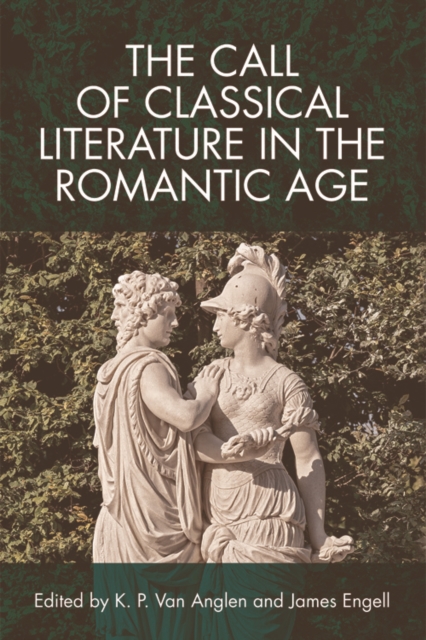
The Call of Classical Literature in the Romantic Age Paperback / softback
Edited by K. P. Van Anglen, James Engell
Paperback / softback
Description
Re-establishes the enduring presence and value of classical literature in the Romantic era The Call of Classical Literature in the Romantic Age reveals the extent to which writers now called romantic venerate and use classical texts to transform lyric and narrative poetry, the novel, mythology, politics, and issues of race and slavery, as well as to provide models for their own literary careers and personal lives.
On both sides of the Atlantic the classics--including the surprising influence of Hebrew, regarded as a classical language--play a major role in what becomes labeled romanticism only later in the nineteenth century. The relation between classic and romantic is not one of opposition but subtle interpenetration and mutual transformation.
While romantic writers regard what they are doing as new, this attitude in no way prompts them to abjure valuable lessons of genre, expression, and judgment flowing from the classical authors they love.
This volume disturbs categories that have become too settled. Key Features Includes in almost equal proportion British and American authors and is transatlantic in scopeMoves well beyond the five canonical British romantic poets, on whom considerable work has been done concerning their relation to classical literatureIncludes studies of African American and women writers
Information
-
Available to Order - This title is available to order, with delivery expected within 2 weeks
- Format:Paperback / softback
- Pages:304 pages
- Publisher:Edinburgh University Press
- Publication Date:28/02/2019
- Category:
- ISBN:9781474429658
Information
-
Available to Order - This title is available to order, with delivery expected within 2 weeks
- Format:Paperback / softback
- Pages:304 pages
- Publisher:Edinburgh University Press
- Publication Date:28/02/2019
- Category:
- ISBN:9781474429658






